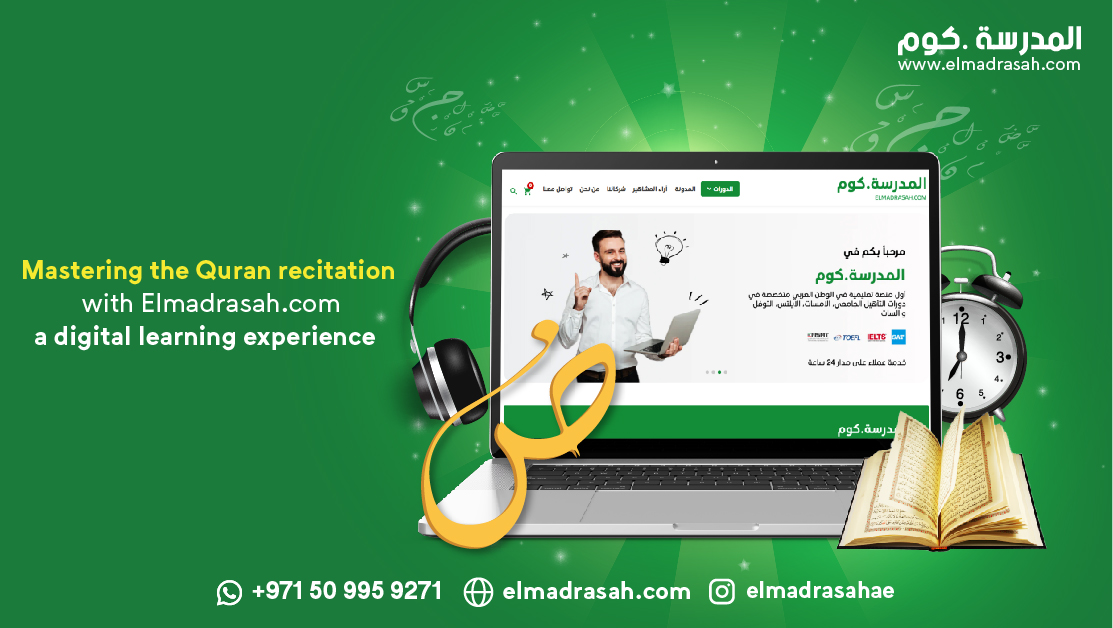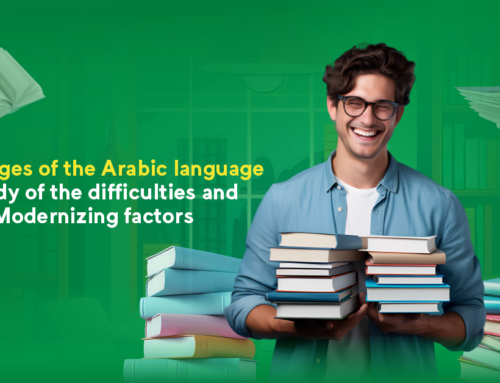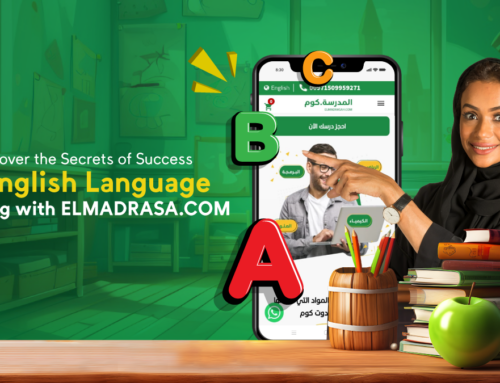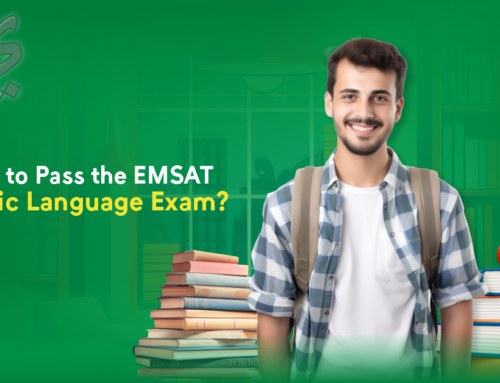
In the digital era we live in, technology has become an integral part of our daily lives. Its benefits are not limited to the fields of business and social communication alone, but have extended to include education and knowledge dissemination. Among the aspects that have witnessed significant progress in this context is the learning and mastery of the recitation of the Quran. In Iraq, where the educational infrastructure faces many challenges, digital education has provided an effective solution for those wishing to learn the recitation of God’s book in a correct and proficient manner.
This article seeks to review the experience of digital learning in Iraq regarding mastering the recitation of the Quran, and how digital tools and platforms have contributed to a qualitative leap in this field.
Learning the Quran in Iraq
Iraq, being one of the fertile lands that witnessed a rich history in the development of Islamic civilization, has a prominent role in teaching and interpreting the Quran. Iraqi schools and scholars have contributed to serving the Quran and conveying its teachings through generations.
- Educational History: Since the early Islamic ages, Iraq has had a place in Quranic sciences, with schools and memorization circles established in various Iraqi cities.
- Schools and Seminaries: Schools and religious seminaries in Najaf and Karbala are among the most prominent institutions that contributed to teaching the Quran and its sciences. Students from various parts of the Islamic world come to study at these institutions.
- Cultural Traditions: The cultural and social system in Iraq encourages the learning and memorization of the Quran from a young age. Many families make it a point to teach their children the Quran at an early age.
- Modern Challenges: Despite Iraq’s pioneering role in Quranic education, the country has faced multiple challenges over the past decades, including wars and political unrest, which have impacted educational life in general.
- Technology and Digital Education: With the advancement of technology, Iraq has begun to embrace digital methods in Quranic education, through applications and websites that offer specialized lessons and recitations.
Teaching the Quran in Iraq is a fundamental part of the country’s identity and cultural heritage. Despite the challenges the country has faced, preserving the Quran and its teachings remains a significant base in Iraqi thought and culture.
Educational History of the Quran in Iraq: From Traditional Methods to Digital
Iraq, being one of the cradles of Islamic civilization, has always been at the heart of educational and cultural activity related to the Holy Quran.
Initial Educational Beginnings:
In the early spread of Islam in Iraq, schools and study circles began to appear to teach people how to read and recite the Holy Quran. They were characterized by an educational context that relied on oral transmission, where memorization and intonation were achieved through continuous listening and repetition.
Religious Education Centers:
Cities like Najaf and Karbala became main hubs for Islamic studies and were distinguished by establishing significant seminaries that specialized in teaching religious sciences, including the art of Quranic intonation.
Developments in Modern Times:
Over time, with technological and educational advancements, the means of teaching the Quran in Iraq began to evolve. Quranic education was incorporated into school curricula, and specialized books and references were used to enhance students’ understanding.
The Digital Age:
With Iraq’s entry into the digital age and the expansion of the internet, dedicated digital platforms and applications for teaching the Holy Quran began to emerge. Students could now learn intonation, listen to various recitations, and even participate in remote memorization circles.
Challenges and Opportunities:
Despite the benefits digital education has brought to Quranic education in Iraq, it’s not without challenges, especially concerning maintaining quality. However, technology provides immense opportunities to broaden access and offer a rich, multifaceted educational experience.
Benefits of Using Technology in Learning Quran Recitation:
Technology has revolutionized many aspects of our lives, and learning the recitation of the Holy Quran is no exception. Relying on technology for teaching and reciting the Quran has offered numerous benefits:
- Broader Communication: Thanks to technology, learners worldwide can access skilled teachers in the art of intonation and Quranic recitation without needing to relocate or travel.
- Flexibility in Learning: Digital platforms and apps allow learners to review and practice Quranic recitation at their own pace and at times they find suitable.
- Interactive Learning: Some apps offer interactive features that help learners correct their mistakes instantly, like matching recitation to a specific reading or correcting intonation.
- Diverse Resources: Access to recordings from various reciters, video lessons, and rich educational materials is all at hand, enriching the learning experience.
- Adaptive Speed: Learners can adjust the speed of audio recitations to suit them, helping them understand and practice verses better.
- Social Interaction: Through digital learning platforms, learners can participate in groups and memorization circles, sharing experiences and knowledge with other learners.
- Content Updating and Development: Technology allows easy content updating and lessons, ensuring information remains current and aligned with the latest teaching methods.
Technology is a powerful tool for enhancing the learning and recitation of the Holy Quran. By integrating the age old traditions of Quranic teaching with contemporary technology, learners can benefit from a comprehensive and rich educational experience.
Balancing the Preservation of Traditions with Embracing Technology in Quranic Education
In a world characterized by the rapid pace of technological progress, educators, especially those in the field of Quranic teaching, face a dual challenge: How can one maintain age-old traditions while simultaneously benefiting from technological innovations?
Traditions in Quranic Education:
Historically, the teaching and retention of the Holy Quran relied on traditional methods, where the Sheikh would recite verses, and students would repeat after him in memorization circles. This approach fostered a personal connection between the Sheikh and the student, reinforcing community ties.
Benefits of Technology:
Technology offers limitless opportunities to facilitate and amplify the learning experience. Through apps and digital platforms, learners can access a wealth of knowledge resources, various recitations, and interpretative lessons from around the world.
Achieving Balance:
To strike a balance between traditions and technology, one must view technology as a tool that enhances traditional methods, not a replacement. Digital media can offer supplementary educational materials and interactive exercises, while the direct interaction with a teacher remains invaluable.
Appreciating True Value:
The primary goal of learning the Quran is to understand its message and apply it to life. While technology can provide advanced learning means, the importance of personal connection and human interaction in this process should not be forgotten.
Training and Development:
To ensure effective balance, teachers need to be trained to utilize technology effectively and choose media that complements traditional teaching methods.
Preserving traditions and embracing technology are not contradictory. With the right balance, both can work side-by-side to enhance the experience of learning the Holy Quran, making it richer and more impactful.
Courses on learning the Quran with Elmadrasah dot com Platform
In an era of technological advancement and the widespread use of the internet globally, e-learning platforms have become an essential complement to the educational process in various fields. Among these fields is the Courses on learning the Quran, representing a source of inspiration and guidance for Muslims in their daily lives.
Elmadrasah dot com: An Innovative Digital Platform
The Elmadrasah dot com platform is one of the digital platforms offering educational courses in various fields. Among these courses are those dedicated to learning the Holy Quran. These courses are characterized by features that make them an ideal choice for those eager to learn and memorize God’s book:
- Flexibility in Learning: The platform allows students to study at times and places that suit them, granting them freedom in choosing the optimal time to focus and learn.
- Interactivity: The platform offers multimedia content like videos, audio recordings, and interactive exercises to reinforce understanding and solidify memorization.
- Qualified Teachers: The platform provides an opportunity for students to interact with qualified and experienced teachers in Quranic teaching.
- Continuous Evaluation: Through quizzes and practical exercises, students can continually assess their progress and identify areas that might require more focus.
- Impact on Society : Beyond direct benefits to students, Elmadrasah dot com platform has a positive societal impact, contributing to raising religious awareness and strengthening the relationship between Muslims and their holy book.
How can I improve my Quran recitation skills?
Improving Quran recitation skills requires dedication, practice, and a deep understanding of Tajweed (the rules of Quranic pronunciation). Here are some steps you can take to enhance your Quran recitation abilities:
- Seek Knowledge: Invest time in studying the rules of Tajweed. There are numerous resources available, including books, online courses, and local classes, that can help you understand the proper pronunciation and articulation of each letter and the rules that govern their recitation.
- Find a Qualified Teacher: It is highly recommended to seek guidance from a qualified Quran teacher who can provide personalized instruction, correct your recitation, and guide you through the intricacies of Tajweed. A teacher can identify your strengths and weaknesses and provide specific feedback and guidance.
- Practice Regularly: Consistent practice is essential for improvement. Set aside dedicated time each day to recite and practice Quranic verses. Start with shorter passages and gradually increase the length as you become more proficient. Focus on accuracy, fluency, and applying Tajweed rules correctly.
- Listen to Expert Reciters: Regularly listening to experienced and knowledgeable Quran reciters can help develop your own recitation skills. Pay attention to their pronunciation, melodious tone, and application of Tajweed rules. You can find recitations online or through dedicated Quran recitation apps.
- Recite with Tarteel: Tarteel refers to the rhythmic and measured recitation of the Quran. Practice reciting at a slow and measured pace, paying attention to the proper pronunciation and elongation of letters. This helps in developing a beautiful and melodious recitation.
- Reflect on the Meaning: Quran recitation is not solely about the sound and pronunciation; it is also about understanding and reflecting on the message. Take the time to study the meaning of the verses you recite. Understanding the context and the intended message will add depth and meaning to your recitation.
- Seek Feedback: Regularly recite to a knowledgeable person who can provide feedback on your recitation. This can be your Quran teacher, a knowledgeable family member, or a fellow student. Constructive feedback will help you identify areas for improvement and refine your recitation.
- Practice Tajweed Exercises: There are specific exercises designed to improve various aspects of Tajweed, such as proper pronunciation of letters, correct articulation of specific sounds, and applying the rules of Tajweed. Incorporate these exercises into your practice routine to strengthen your skills.
Remember, improving Quran recitation skills is a gradual process that requires patience and perseverance. Stay consistent, seek guidance from experts, and most importantly, approach your recitation with sincerity and a humble heart.
As time progresses, reliance on digital platforms in education increases, and Elmadrasah dot com stands as a commendable model in this arena, especially concerning learning the Holy Quran. Bridging technology and traditions, the platform offers Muslims a unique opportunity to deepen their relationship with God’s book in the digital age.















